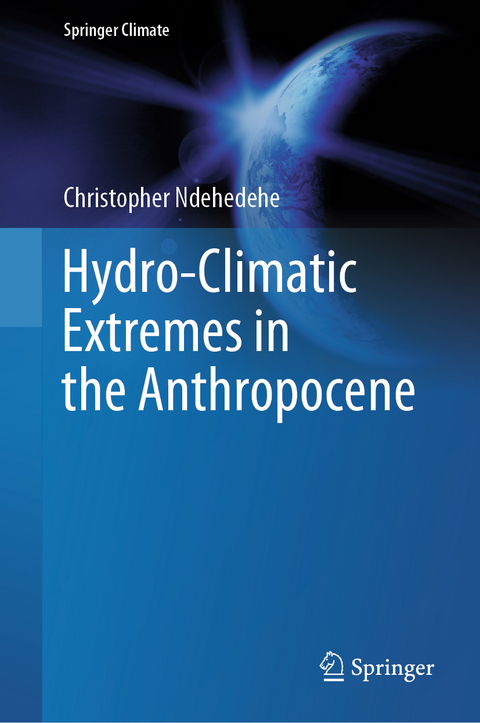
Hydro-Climatic Extremes in the Anthropocene
Springer International Publishing (Verlag)
978-3-031-37726-6 (ISBN)
Dr. Christopher Ndehedehe is a senior lecturer at the School of Environment and Science, Griffith University, where he concurrently serves as an Australian Research Council (ARC) DECRA (Discovery Early Career Researcher Award) fellow (2023-2026). He joined Griffith University in June 2018 under its Areas of Strategic Investment as a Research Fellow in Griffith's Australia's Rivers Institute. This was after the completion of an outstanding Ph.D. thesis, which received the vice-chancellor's commendation in early 2018 at Curtin University, Western Australia. Christopher is a leading expert in satellite hydrology and environmental geo-informatics with a strong international reputation and experience in remote sensing of water resources. This is exemplified in his pioneering cutting-edge cross-disciplinary research in environmental remote sensing and satellite hydrology that connects climate, freshwater resources, and the environment.
Part I The Anthropocene.- Part II Hydro-climatic extremes.- 2 Hydro-climatic extremes.- Part III Water resources.- 3 How much freshwater is available?.- 4 Satellite hydrology.- 5 Can the wells run dry?.- 6 Multi-satellite systems in environmental monitoring.- Part IV Machine learning.- 7 Novel machine learning applications.- Part V Hydro-climatic extremes.- 8 Drought characterization and links to global climate.- 9 Measuring impacts of drought from space.- 10 Changes in hydro-meteorological conditions.- 11 Modelling impacts of climate change on freshwater.
| Erscheinungsdatum | 05.10.2023 |
|---|---|
| Reihe/Serie | Springer Climate |
| Zusatzinfo | XXII, 454 p. 157 illus., 149 illus. in color. |
| Verlagsort | Cham |
| Sprache | englisch |
| Maße | 155 x 235 mm |
| Gewicht | 962 g |
| Themenwelt | Naturwissenschaften ► Biologie ► Ökologie / Naturschutz |
| Naturwissenschaften ► Geowissenschaften ► Geologie | |
| Naturwissenschaften ► Geowissenschaften ► Hydrologie / Ozeanografie | |
| Schlagworte | Anthropocene • climate change • Earth observation • Extreme events • machine learning |
| ISBN-10 | 3-031-37726-5 / 3031377265 |
| ISBN-13 | 978-3-031-37726-6 / 9783031377266 |
| Zustand | Neuware |
| Informationen gemäß Produktsicherheitsverordnung (GPSR) | |
| Haben Sie eine Frage zum Produkt? |
aus dem Bereich


